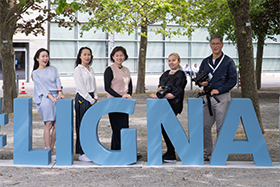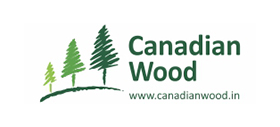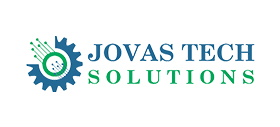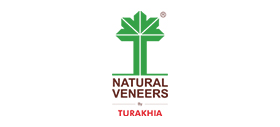A circular future for fibreboard waste
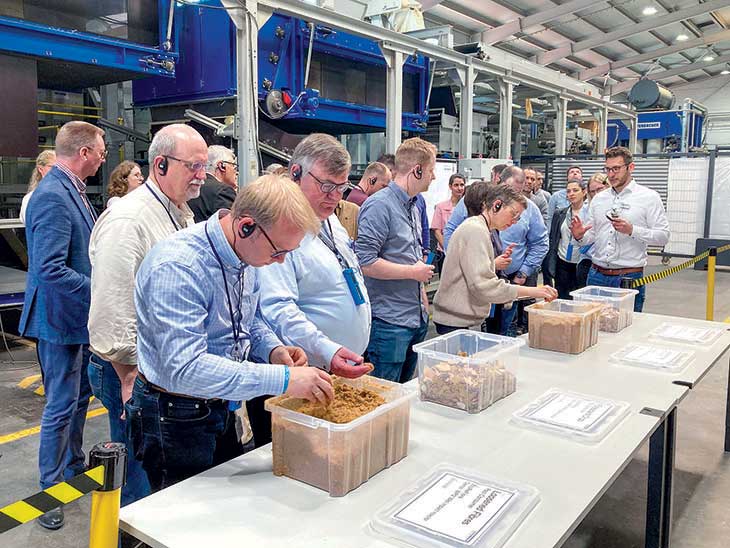
At the core of EcoReFibre’s strategy is a robust network of 20 partners from across Europe, encompassing academia, technology providers, recycling companies and major manufacturers.
Each year, the European wood-based panel industry produces around 64 million cubic metres of material, with fibreboards forming a substantial share of that volume.
These engineered wood products are widely used in furniture, construction, and interior applications, but at the end of their useful life, they are rarely recycled. Instead, they are incinerated for energy recovery or relegated to landfills due to the technical and economic complexities involved in their recycling.
EcoReFibre, a research and innovation initiative, is working to fundamentally change this. It has introduced a circular economy model specifically tailored to the fibreboard industry. By developing commercially viable recycling pathways, the initiative seeks to return post-consumer fibreboards to the production cycle as raw materials.
The goal is not only to recover waste wood but also to substitute up to 25% of the virgin fibres used in the European fibreboard sector with secondary materials. This could dramatically reduce the industry’s dependence on natural resources while addressing the growing challenges of raw material availability and environmental impact.
Pilot projects
The project has launched five industrial pilot projects in partnership with key players in the fibreboard market. These pilots aim to develop and validate new techniques for sorting, extracting, and processing fibreboard waste into reusable components such as wood fines and fibres.
By proving that post-consumer fibreboards can be converted into high-quality inputs for new boards, insulation materials, and even advanced bio-composites, EcoReFibre is paving the way for a scalable, sustainable future for the industry.
The initiative is centred around three major challenges that currently hinder fibreboard recycling: sorting, supply and processing.
The first barrier is sorting. Post-consumer fibreboards are typically disposed of through municipal waste streams, often mixed with other materials or misclassified due to a lack of awareness and inadequate infrastructure. This results in a significant loss of recyclable material and creates bottlenecks for recovery.
EcoReFibre is developing innovative sensor-based and automated sorting technologies that can accurately identify and separate fibreboards from mixed waste. Achieving high material purity at this stage is critical, as only uncontaminated fibreboards are suitable for reuse in new products.

Researchers are testing a range of advanced material extraction and refining technologies including chemical, thermal and mechanical methods designed to preserve the integrity of the wood fibres while removing contaminants.
Other challenges
Supply represents the second challenge. Most wood waste is generated in densely populated urban areas, while fibreboard manufacturing facilities are usually located in rural regions close to forestry resources.
Transporting waste over long distances increases both emissions and operational costs, undermining the economic and environmental benefits of recycling.
To overcome this, EcoReFibre is conducting detailed assessments of supply chain logistics, focusing on minimising transport distances, optimising collection networks, and improving cost-efficiency.
This ensures that the flow of secondary raw materials remains sustainable and economically viable.
The third and most technically demanding challenge is fibre processing. Fibreboards are complex composites made from wood fibres bonded with resins and often treated with coatings, fire retardants, or other chemical additives.
Traditional mechanical grinding is insufficient, as it often damages the fibres or fails to separate the components effectively.
To address this, EcoReFibre is testing a range of advanced material extraction and refining technologies. These include chemical, thermal, and mechanical methods designed to preserve the integrity of the wood fibres while removing contaminants. The goal is to recover materials with at least 95% purity, clean enough to be used directly in the manufacture of new panels and fibre-based products.
Collaboratory solutions
At the core of EcoReFibre’s strategy is a robust network of 20 partners from across Europe, encompassing academia, technology providers, recycling companies, and major manufacturers.
This collaboration spans the entire value chain, from waste collection to product manufacturing, allowing for an integrated approach to innovation. Each partner brings specific expertise to tackle the multifaceted nature of fibreboard recycling.
By bridging technical innovation with industrial feasibility, and aligning environmental goals with market realities, EcoReFibre is building a model that can transform how the industry handles its waste.
The initiative not only addresses immediate sustainability concerns but also helps future-proof the sector against raw material volatility and regulatory pressures. With a clear focus on practical implementation and scalable solutions, EcoReFibre is demonstrating that fibreboard recycling is not only possible but also essential for a resilient, resource-efficient future.
Comments

- European symposium highlights formaldehyde emission limits
- Egger adopts holistic approach to waste management
- Weber machines dovetail into best practices
- Hymmen’s smart2i facilitates digitally mapping production
- Understanding paper impregnation
- Rising from the ashes
- Canada’s Western hemlock adorns Indore’s municipal hub
- Hans Weber sets up demo centre in Bengaluru
- More power to woodworkers!
- imos: enhancing furniture sales, production with AI
- Ligna all set to strike gold this May
- ‘For customers, our lab is an open book’
- Anticipation for smart components at Interzum 2025
- Furtech 2025 beckons Indian furniture industry
- HIFF 2025 invites woodworking professionals in September
- CIFF 2025 reimagines global furniture innovation
- Decora makes a mark at Dubai Wood Show
- Understanding PUR glue in membrane press operations
- Machining compact laminates needs precision, durability
- Biesse Customer Care: innovations in support
- Aryamman ushers Staynu tech for furnishings
- Hafele’s RE-Twist raises bar on security
- AWM makes lock, hinge slots easy work
- Biesse’s Akron ensures edge banding excellence
- Hettich sliding systems for precision functions
- Jai’s top-of-the-line wood and panel processing machines
- Schmalz shows benefits of automated handling
- Richwood’s Calibrated Filler is a gamechanger
- Coohom gives wood interiors AR edge
- Taiwan’s Woodworking Machinery Industry Captivates Global Media on Opening Day of LIGNA 2025
- A circular future for fibreboard waste
- ‘Zero ThinPly’ has solid green credentials
- Wood cellulose as air cleaning material?
- Coming of age of sustainability































